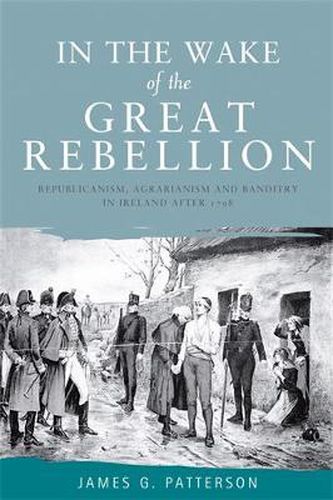Readings Newsletter
Become a Readings Member to make your shopping experience even easier.
Sign in or sign up for free!
You’re not far away from qualifying for FREE standard shipping within Australia
You’ve qualified for FREE standard shipping within Australia
The cart is loading…






On Monday, 19 September 1803, the most significant trial in the history of Ireland took place in Dublin. At the dock stood a twenty-five year old former Trinity College student and doctor’s son. His name was Robert Emmet and he was standing trial for heading a rebellion on 23 July 1803. The iconic power of Robert Emmet in Irish history cannot be overstated. Emmet looms large in narratives of the past, yet the rebellion, which he led, remains to be fully contextualized. Patterson’s book repairs this omission and explains the complex of politicization and revolutionary activity extending into the 1800’s. He details the radicalisation of the grass roots, their para-militarism and engagement in secret societies. Drawing on an intriguing range of sources, Patterson offers a comprehensive insight into a relatively neglected period of history.This work is of particular significance to undergraduate and post-graduate students and lecturers of Irish history.
$9.00 standard shipping within Australia
FREE standard shipping within Australia for orders over $100.00
Express & International shipping calculated at checkout
On Monday, 19 September 1803, the most significant trial in the history of Ireland took place in Dublin. At the dock stood a twenty-five year old former Trinity College student and doctor’s son. His name was Robert Emmet and he was standing trial for heading a rebellion on 23 July 1803. The iconic power of Robert Emmet in Irish history cannot be overstated. Emmet looms large in narratives of the past, yet the rebellion, which he led, remains to be fully contextualized. Patterson’s book repairs this omission and explains the complex of politicization and revolutionary activity extending into the 1800’s. He details the radicalisation of the grass roots, their para-militarism and engagement in secret societies. Drawing on an intriguing range of sources, Patterson offers a comprehensive insight into a relatively neglected period of history.This work is of particular significance to undergraduate and post-graduate students and lecturers of Irish history.